Presidential candidates and their game plans
There are 10 opposition and independent candidates taking on President Yoweri Museveni as he seeks re-election on January 14, 2021. Sunday Vision’s reporter looks at their game plans, their strengths and weaknesses.
ELECTION WATCH | PRESIDENTIAL CANDIDATES
Nine men and one woman are squaring off with President Yoweri Museveni of the National Resistance Movement (NRM) in the next general elections.
These are Maj. Gen. (rtd) Mugisha Muntu of the Alliance for National Transformation (ANT), Eng. Patrick Amuriat of the Forum for Democratic Change (FDC), Norbert Mao of Democratic Party (DP) and Robert Kyagulanyi aka Bobi Wine of the National Unity Platform (NUP).
Others are independents Lt Gen. (rtd) Henry Tumukunde, Joseph Kabuleta, Fred Mwesigye, Willy Mayambala, John Katumba and Nancy Kalembe, the only female contender.
However, President Museveni is confident of victory again due to his party's record of service to the people.
In the foreword to the 2021-2026 NRM manifesto book, Museveni notes that under the NRM leadership, their democracy has deepened and blossomed to full maturity, to the extent that anyone can now dream of leading Uganda.
"At every definitive stage on our long journey, the visionary leadership of the NRM has always championed progressive policies and programmes to steer the country forward.
‘‘This is an epic journey to our destiny and while it might be replete with challenges, it is full of hope and promise," Museveni, who has led Uganda since capturing power in 1986, writes.
"Through our successive visionary manifestos, we have rallied Ugandans around our strategic policies that best serve their diverse aspirations and enhance their welfare. When NRM sought, for the first time, your support and mandate to lead this country in 1996, our promise was Presidential Tackling the tasks ahead,'' he says.
Museveni states that over the years, Ugandans have renewed this mandate and enabled the NRM to make steady progress in taking the country to modernity through job creation and inclusive development.
"We are now ready for take-off. The theme of our manifesto this term is ‘Securing your future'. The drastic socio-economic transformation that has been achieved under the NRM has awakened Ugandans to meaningfully participate in wealth and job-creation initiatives," he observes.
Analysts say Museveni's biggest achievement is bringing stability to Uganda after decades of strife and that "stability" and "prosperity", which were emblazoned all over NRM campaign materials in the previous elections, came as no surprise.
They argue that the subtext was Museveni's close relationship with the army and the suggestion that only he could keep it from returning to its ignominious practice of terrorising civilians.
They also say appearing on the ballot paper for the sixth time in a row means that voters have a fresh memory of him.
However, they note that his biggest challenge has been fighting corruption in public administration, which they say leads to a misallocation of talent and resources, weakening the state's ability to provide quality services.
Robert Kyagulanyi
A musician by training, Kyagulanyi, appears to have the wind in his sails.
He entered elective politics in June 2017, winning the Kyadondo East MP seat. He has since developed a strong reputation as a fierce Museveni critic and became the face of the Opposition.
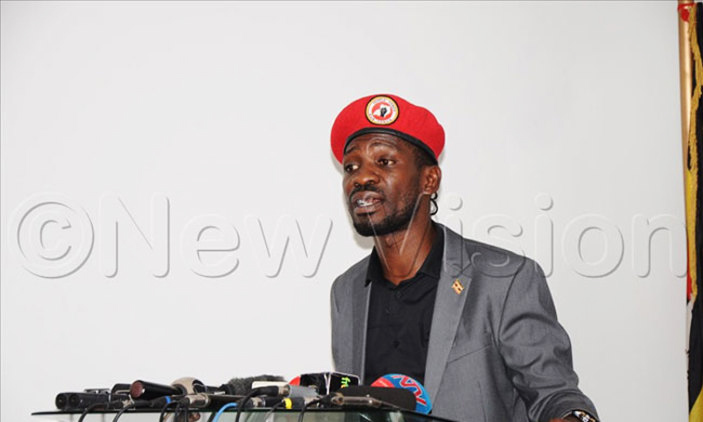
Kyagulanyi comes across as a charismatic, fresh-faced youth, who is demystifying age and politics in Uganda.
Analysts say his People Power movement, which morphed into NUP, seems to have ignited a certain sense of confidence among young people to be the change they would like to see.
However, Abdu Katuntu, who initially won the Bugweri County MP seat under the all-inclusive Movement system, but later crossed to Reform Agenda that gave birth to FDC, says Kyagulanyi has not yet built a political infrastructure that can pose a serious challenge to Museveni, who has led Uganda since 1986.
"The People Power movement is still a wave. The tide of this wave in the central region is high, but in other regions, it is still extremely low. Many of those young people who are running around People Power were FDC activists, so it has not yet moved to the level of a political organisation that can pose serious challenges," Katuntu says.
But as the new kid on the block, Katuntu says Kyagulanyi should be given credit in terms of mobilising the youth, especially the urban poor, who naturally would be opposed to the Government, anyway, because they are poor and unemployed.
"Urban poor is a constituency, which is already made for any opposition. It was already made for Dr Kizza Besigye of FDC and after him overstaying (his welcome), they got frustrated and turned to Kyagulanyi," Katuntu, a seasoned opposition lawmaker, contends.
Mugisha Muntu
Many ANT officials and analysts say Gen Muntu is a long-distance runner, whose project is long-term and doesn't seem to be bothered by short-term gains of this election.
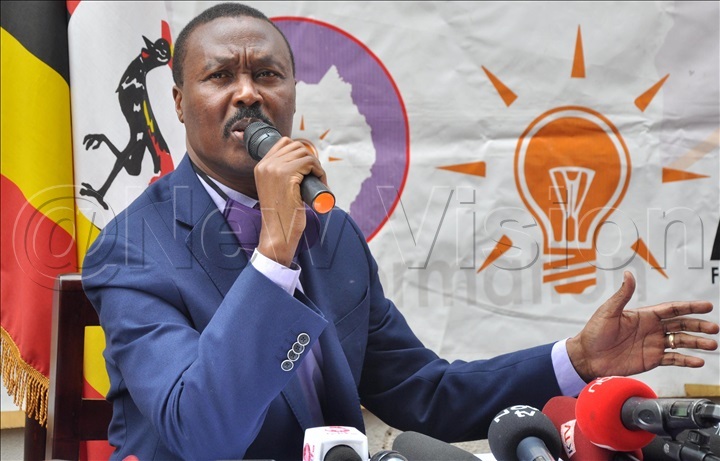
They explain that if he moves one step, he will congratulate himself and if he moves two steps, he will also give himself a pat on the back.
"If we truly want to change our nation's trajectory, we must seek to do differently. Replacing one strong man for another has never worked for us in the past; it will not work for us now. We must be willing to walk away from the politics of individuals to that of institutions," Muntu says.
Acting ANT president, Alice Alaso says her candidate wants to change the political culture in this country from where people use politics as an end in itself just to have power and make no difference.
"In Gen. Muntu, the former army commander and former FDC president, they have an honest person," Alaso, who wants to reclaim her Serere Woman MP seat in 2021, says.
She pours cold water on the opinion that Muntu's politics is not fit for the Ugandan political terrain because he is not aggressive and combative.
"He doesn't need to shout so that his critics know that he can fight. He already has CVs of fighting, so what else do we have to prove? He has nothing to prove, he is being himself," Alaso, the former FDC secretary general, argues.
However, many analysts that Sunday Vision talked to say the political culture that Muntu wants to change in the Ugandan political sense is not something you can easily see and the majority of Ugandans may not be seeing it now.
So, they say it will take some time and they don't expect him to make a very big challenge this time round.
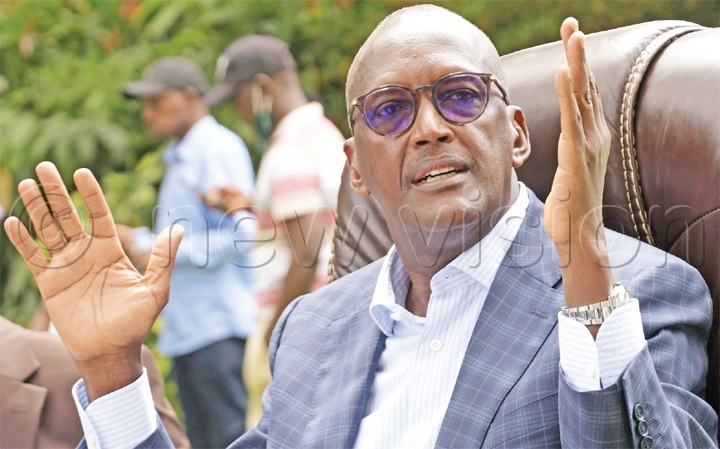
Gen. Tumukunde is the most senior retired Uganda People's Defence Forces (UPDF) officer to challenge President Museveni in the general election.
Analysts say he brings new energy to the fight against Museveni because he knows the operations of the ruling party like the back of his hand and also knows the buttons to cause shock waves.
They say even when he was within the army, where he served as head of the Internal Security Organisation (ISO), Chieftaincy of Military Intelligence (CMI) and commander of the UPDF 4th Division, Tumukunde was instrumental in creating some network around the country, which played a key role in Museveni's previous elections.
In the 2016 elections, that network neutralised former prime minister Amama Mbabazi's political machinery and after the polls, Tumukunde was named security minister.
He is now campaigning to unseat Museveni under his "Renewed Uganda" platform.
The chairperson of his campaign team, Omar Kalinge-Nnyago, expressed confi dence that since his candidate created that countrywide network, he can still use it to win the race.
"The people he met while drumming up support for Museveni, especially in the last elections, are still alive and active. That is why we didn't have any problem getting signatures of voters to support his candidature," Kalinge told Sunday Vision.
However, many doubt that the network of NRM supporters that Tumukunde created is loyal to him.
"We are yet to see," one of the analysts, who sought anonymity because he and Tumukunde are friends, said.
Kalinge also noted that the experience Tumukunde gained in about 30 years of serving in the army and later in the Government as security minister will stand him in good stead when he hits the campaign trail.
"He is the architect of Uganda's security apparatus. You can't talk about security in Uganda without talking about Gen. Tumukunde. So, if security is an important consideration in choosing a presidential candidate, then he is the candidate for you," he said.
But analysts say that being an independent contender places Tumukunde at a disadvantage since he has no party structures to bankroll his candidature, thereby leaving the mantle of leading the opposition to his colleagues, who are also leading their parties.
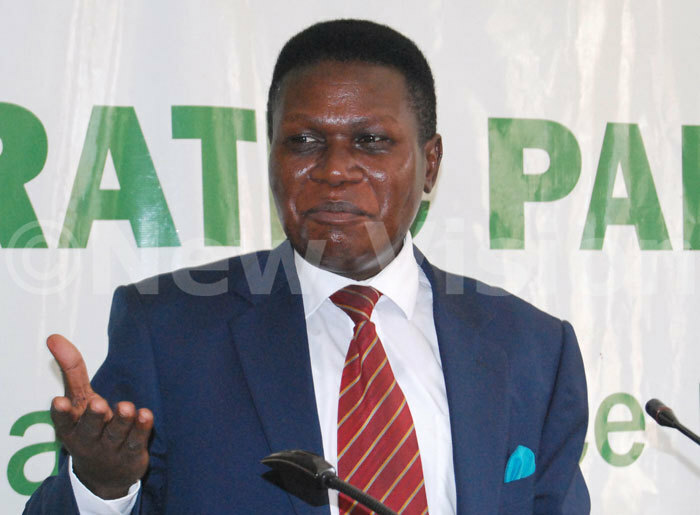
Mao, the former Gulu Municipality MP and district chairperson, is taking another shot at the presidency.
Analysts say he is a good public orator with good political brains, but those two may not necessarily win him the presidency.
They say his brilliance and intelligence has not graduated into a national political appeal.
Other analysts also argue that some Ugandans view him as a spy of the regime.
"Mao is an intelligent politician, but that is where he starts and ends. He has failed to get that national political appeal. Whereas in parts of Acholi they respect and revere him, he doesn't have the same appeal in other regions of the country, yet he has been on the political scene for some time," one analyst said.
"He has been leading DP for the last 10 years, but he has failed to grow that party. He also failed to tame the contradictions within the party, hence the exodus of people (over 10 MPs) from DP to NUP," the analysts said.
They noted that that was a big blow to Mao in that NUP cultivated DP activists, such as Busiro East MP Medard Sseggona from DP's stronghold of Buganda region, who should have been helping Mao to grow the party and, theerefore, his national appeal.
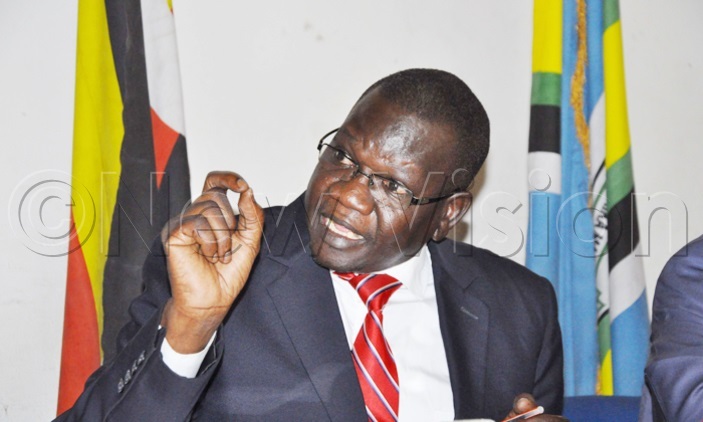
Eng. Amuriat represented Kumi County from 2001-2016. When he contested for the newly created Kanyumu County MP seat in Kumi in the last general elections, he lost to former Kumi LC5 chairperson Ismail Orot of NRM.
A source in FDC says Amuriat is not in the position of party leadership by conviction.
"He is in that position because of the contradictions that were in the party. I don't think he even sees himself as the President of FDC, let alone being the president of a country. He is in that position by circumstances," says the source.
"And even when Amuriat became the president of FDC, his ambition was to reclaim his constituency. He even went out publicly and said ‘once Besigye declares interest in running against Museveni again, nobody should compete with him'," the source added.
Dr Ronald Kakungulu Mayambala, the associate professor of law at Makerere University, says the shock exit of Besigye from this race may have the effect of demoralising his erstwhile supporters, who may not easily switch their support or loyalty to Amuriat.
Mayambala argues that Besigye found it hard to compete in these scientifi c elections and opted out of the race.
"In so doing, his close to four million supporters, who voted for him in 2016, are now up for grabs between the Opposition and the ruling party. It is not automatic that all of them will rally behind Amuriat, as Besigye had built a near personal relationship with his radical political base of supporters over the decades in Uganda's opposition politics," he says.
Besigye's plan B
After trying four times without success to mount a significant electoral challenge to Museveni, Besigye threw in the towel on his bid. He instead said he would focus on what he termed as ‘Plan B' in order to cause regime change.
"In this plan, we assent that the means to cause that change, to reclaim our influence is to fight. Plan B is a plan for fighting," Besigye, said recently.
But he hastened to add that there is a wide range of fighting, and not necessarily mean taking up arms against the Government.
2021 little-known independent candidates
All the independent candidates, except Tumukunde, are new in the political field and their undoing is that they are little-known which demands serious kakuyege (grass root canvassing for votes) to market themselves.
"Given that from tomorrow they have 60 days to campaign and given that there will not be political rallies due to restrictions in the fight against COVID-19 pandemic, it is unlikely that they will have an opportunity to take their messages to the people, however good they are. So clearly those can't be frontrunners," Peter Walubiri, a constitutional lawyer, who is also a member of Uganda People's Congress (UPC), argues.
However, there are analysts who say these independents' advantage lies in their novelty and in the glimpse of hope they are providing.
For example, in his speech after being nominated candidate, Kabuleta, who is from the world of evangelism, promised "financial liberation for all" once elected.
"If you want to have money in your wallet, vote for me. Money in people's pockets is the reason I am standing for president of this country," Kabuleta, who has previously worked as a pastor, activist and sports journalists, said.
Walubiri also states that the rest of opposition candidates are relatively well known in the public domain, so they have better prospects than the other lot.
However, he notes that the disadvantage of these favourites is that given the short time for the scientific campaigns, the resources at their disposal and the (security) interference in their campaign activities, they will face an uphill battle to unseat President Museveni who enjoys massive advantages of incumbency.